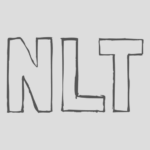When old knowledge interferes with the brain’s ability to absorb new information, learning is slower and harder. Psychologists call this proactive interference.
We are faced with this if, for example, we have to switch to manual control after automatic control. Or when we start learning French for work, even though we studied English at school. As a result, we get something “French”.
In this case, we need, as scientists David Lei and John Slocum say, to deliberately reject outdated, redundant information. Gradually, it will be erased from memory and replaced by a new one. However, it’s not always that easy.
The more revolutionary new technologies become, the more difficult it is for us to forget existing approaches to product development and old business models.
David Lei and John Slocum
The same thing works in the career field. Stubbornly adhering to outdated views, you yourself will not notice how you will become redundant in your field of activity. To get rid of unnecessary information, you must deliberately question everything that was relevant before.
Three tips will help you with this.
1. Make sure you’re wrong
Describing how he dealt with the doubts that arose during experiments, the famous theoretical physicist Richard Feynman said: “We want to make sure we’re wrong as soon as possible, because this is the only way to come to a result.”
This statement applies not only to physics, but also to all professions. But if we just think to ourselves, “Maybe I’m wrong?” — it won’t do anything. Our brain naturally strives to confirm existing ideas, no matter how preconceived they may be. To test your beliefs, it’s best not to fence yourself off from information that can refute them.
Of course, changing your point of view when faced with unbalanced information is not easy. It’s unpleasant to find that what I believed in doesn’t stand up to scrutiny. This is why the ability to forget old information is so important.
2. Double the number of sources of information
One of the reasons why team offices thrive is that in such an environment, the perspectives and views of employees from different industries mix and influence each other. This helps keep our thinking going — which, according to Andrew Butler, an assistant professor of educational psychology at the University of Texas at Austin, is what is necessary for forgetting outdated information.
Misinformation and faulty thinking patterns come to us from a variety of sources, including movies and books. Instead of relying on what you think you know well, try to expand your sources of information.
Andrew Butler
Many believe that the sources from which they get information and new ideas are fully reliable. But the longer we are in a position, the further we go in our careers, the more important it is for us to expand our approach to finding information.
3. Use fear to your advantage
Adeo Ressi, founder of the Founder Institute, helps people change their careers and become entrepreneurs.
“It takes about three and a half months to reconfigure people, get rid of existing attitudes and teach them to think like entrepreneurs,” Ressy says.
He uses various exercises to motivate students, including exercises aimed at arousing fear. For example, aspiring entrepreneurs must create their own website, attract 2,000 people, and sell 50 products within a limited period of time. Many people are afraid of this at first.
“However, most people who initially thought this was impossible achieve great results when they forget about the supposed limitations of their potential,” says Ressy.
So instead of just getting rid of unnecessary skills and replacing them with new ones, try to question not only your knowledge, but also your views about yourself and your capabilities.
Source: https://lifehacker.ru/3-sposoba-izbavitsya-ot-znanij/
For questions regarding ownership, please contact the author of the original text.
